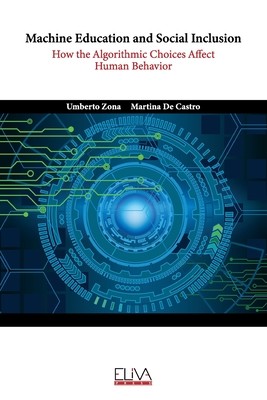
- We will send in 10–14 business days.
- Author: Martina de Castro
- Publisher: Eliva Press
- ISBN-10: 1636486002
- ISBN-13: 9781636486000
- Format: 15.2 x 22.9 x 0.5 cm, softcover
- Language: English
- SAVE -10% with code: EXTRA
Reviews
Description
This book contains a series of essays linked by a common thread: the relationship between technology, languages and informal educational practices. Connecting these three subsets is the concept of culture, understood not as a simple common denominator but as a lens for reading all the phenomena examined. This means attempting to read technology from the subjects and not from the tools they use. It is a distinction, we think, not insignificant. If, in fact, we consider digital technologies to be mere tools, whose value changes according to the use made of them, we risk falling into an obsolete determinism that cannot tell us anything about the transformations that these technologies have triggered. If, instead, we bring to light their nature of social devices we can try to grasp their constituent power. It is not a gamble to say that devices produce subjectivity: we need only think of the set of social and communicative practices that have arisen around the use of Apps, of the subcultures generated by video games, of the online communities that, thanks to connective psycho-technologies, have chosen the Net as their home. All this inevitably reverberates on learning processes, which today must be contextualized within the multiplicity of environments - real and virtual - in which they are located. The complex nature of these processes, moreover, directly influences the modes, forms and times of teaching, whose territories now expand far beyond the institutional boundaries of the school and are threatened by the proliferation of informal educational agencies and didactic strategies that are often difficult to understand but, not for this reason, less effective.
EXTRA 10 % discount with code: EXTRA
The promotion ends in 19d.13:49:54
The discount code is valid when purchasing from 10 €. Discounts do not stack.
- Author: Martina de Castro
- Publisher: Eliva Press
- ISBN-10: 1636486002
- ISBN-13: 9781636486000
- Format: 15.2 x 22.9 x 0.5 cm, softcover
- Language: English English
This book contains a series of essays linked by a common thread: the relationship between technology, languages and informal educational practices. Connecting these three subsets is the concept of culture, understood not as a simple common denominator but as a lens for reading all the phenomena examined. This means attempting to read technology from the subjects and not from the tools they use. It is a distinction, we think, not insignificant. If, in fact, we consider digital technologies to be mere tools, whose value changes according to the use made of them, we risk falling into an obsolete determinism that cannot tell us anything about the transformations that these technologies have triggered. If, instead, we bring to light their nature of social devices we can try to grasp their constituent power. It is not a gamble to say that devices produce subjectivity: we need only think of the set of social and communicative practices that have arisen around the use of Apps, of the subcultures generated by video games, of the online communities that, thanks to connective psycho-technologies, have chosen the Net as their home. All this inevitably reverberates on learning processes, which today must be contextualized within the multiplicity of environments - real and virtual - in which they are located. The complex nature of these processes, moreover, directly influences the modes, forms and times of teaching, whose territories now expand far beyond the institutional boundaries of the school and are threatened by the proliferation of informal educational agencies and didactic strategies that are often difficult to understand but, not for this reason, less effective.


Reviews